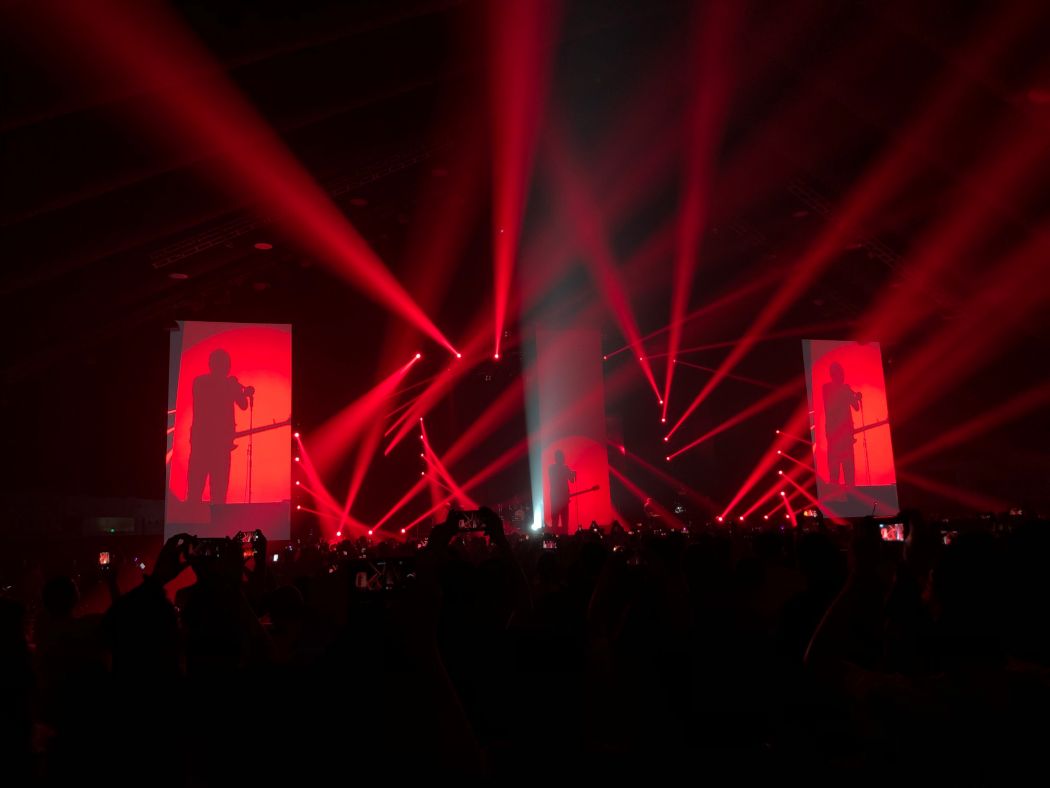Cui Jian, often deemed the “godfather of rock in China,” sang songs popular during the 1989 student-led movement at a little-advertised concert in Guangzhou on Sunday – the day before the anniversary of the Tiananmen massacre.
The musician visited the student protesters on Tiananmen Square during the ill-fated protests, giving a concert to support the hunger strikers 15 days before the government’s violent crackdown. He sang “Nothing to My Name,” and “A Piece of Red Cloth,” which he performed with a red blindfold over his eyes.
“Nothing to My Name,” originally a song whose character asks his sweetheart to love him even though he has nothing, became an anthem for the student protesters. The musician was refused permission to play major venues in Beijing for years afterwards, according to foreign media.

The Tiananmen massacre ended months of student-led demonstrations across China. It is estimated that hundreds, perhaps thousands, of people died when the People’s Liberation Army was deployed to crack down on protesters in Beijing.
Iconic songs
Hong Kong broadcaster i-Cable, whose China team filmed the concert on Sunday, cited unnamed sources saying that authorities forbade Cui from performing songs on albums released around June 4, 1989 at the concert.
But around half of the songs he performed were from albums released around that time, the news channel said.
He performed “Rock ‘n’ Roll on the New Long March.” But other iconic songs were missing from the set – including “The Last Shot” – a song released in 1987 widely seen as reminiscent of the massacre – and “The Box” – featuring the lyrics “go back and break those broken boxes, go back and tear up those tattered flags.”

Cui did not give special introductions to the songs popular during the 1989 movement, but when introducing some of his other songs, he said: “Our fury from that time has still not subsided today. So tonight I’m going to sing this song again, and reminisce about why we were so angry back then.”
“To tell you the truth, until today I still don’t know why I am angry, and don’t know why we suffered that hurt. But this hurt still gives us feeling.”
“Now it is already 2018, that which should have changed still has not changed,” he continued, to cheers from the audience, “so this song still has a bearing on reality. Ok, I hope everyone can understand what I’m saying.”
i-Cable reported that the concert was low-key and not well advertised, with no posters inside or outside of the venue.
“In this age it’s hard to write these kinds of songs that shout out to society and to some inner thoughts in people’s hearts, and that view society with a critical eye,” one attendee told i-Cable.
“In the early 80s when Cui Jian was singing these songs it was right at the beginning when our country was opening up, and right when young people were starting to feel lost.”

When asked which songs moved him the most at the concert, another fan said: “Those that he didn’t sing.”
“Some of them were forbidden, like ‘The Box,’” he said, after the reporter asked why he thought Cui did not sing them.

On Weibo, there was little sign of the concert’s affiliation with the 1989 student movement.
“Cui Jian is fucking awesome, of course rock cannot avoid politics. But it is still an extremely successful commercial performance. I aged, but he hasn’t aged,” said one Weibo user who uploaded photos of the concert, along with a drawing of Cui Jian’s signature white ballcap with a red star, which he and some of his fans wore.
Another said: “I went to Cui Jian’s concert, he said the subjects that cannot be discussed are in the music.”
